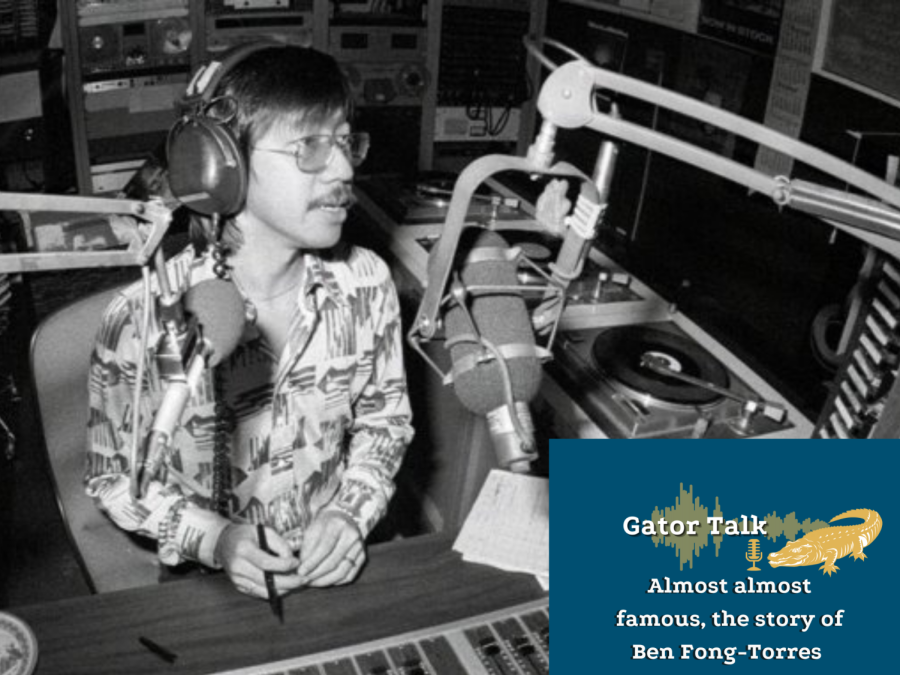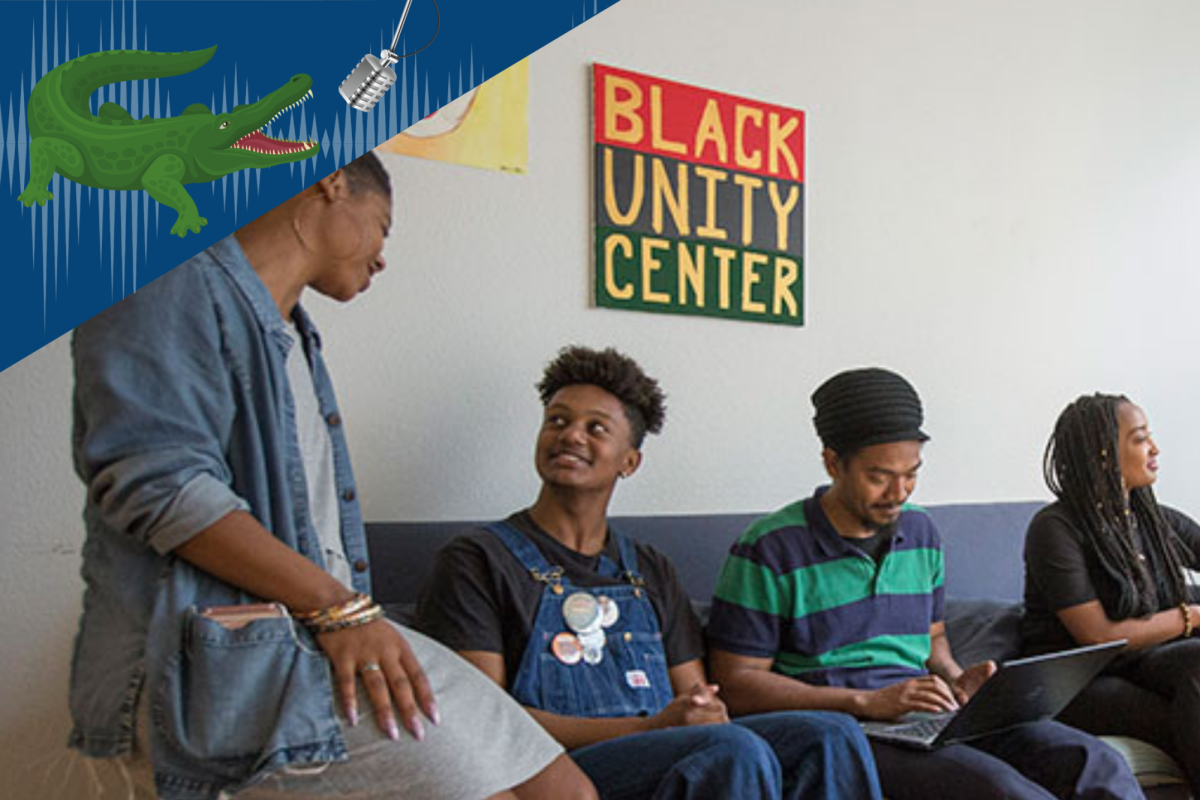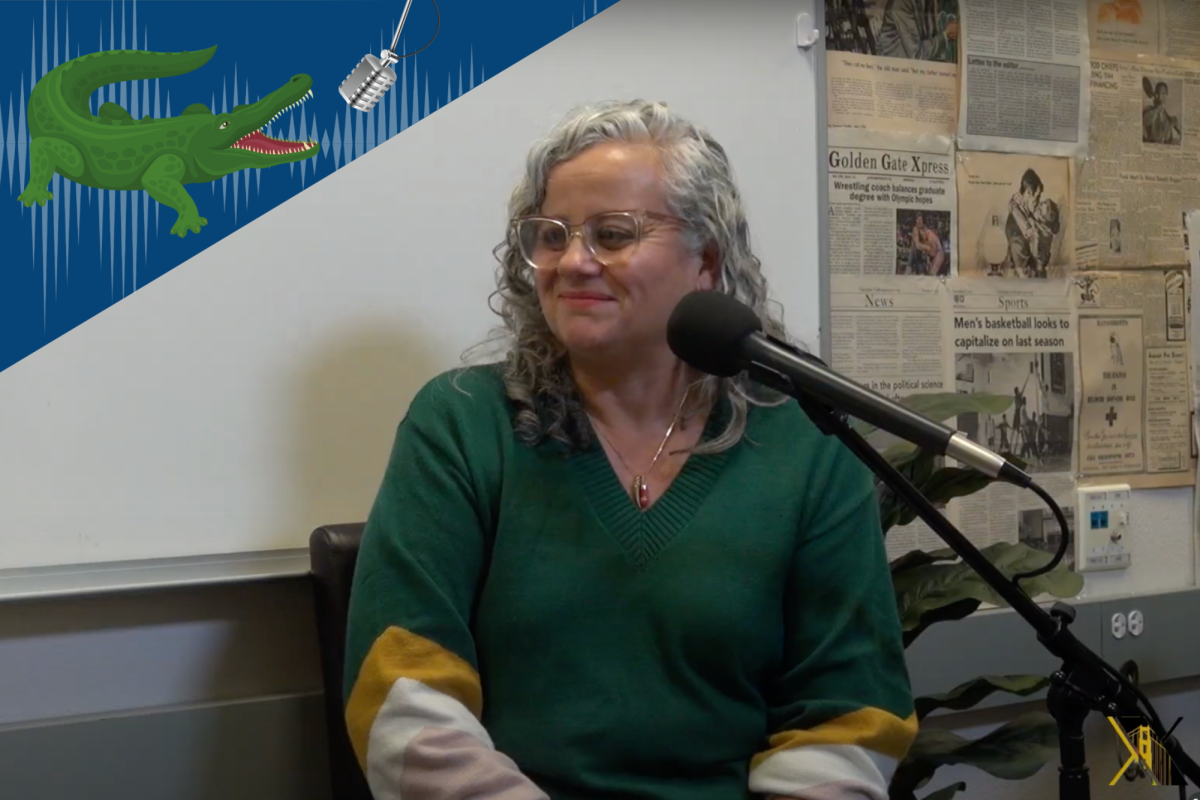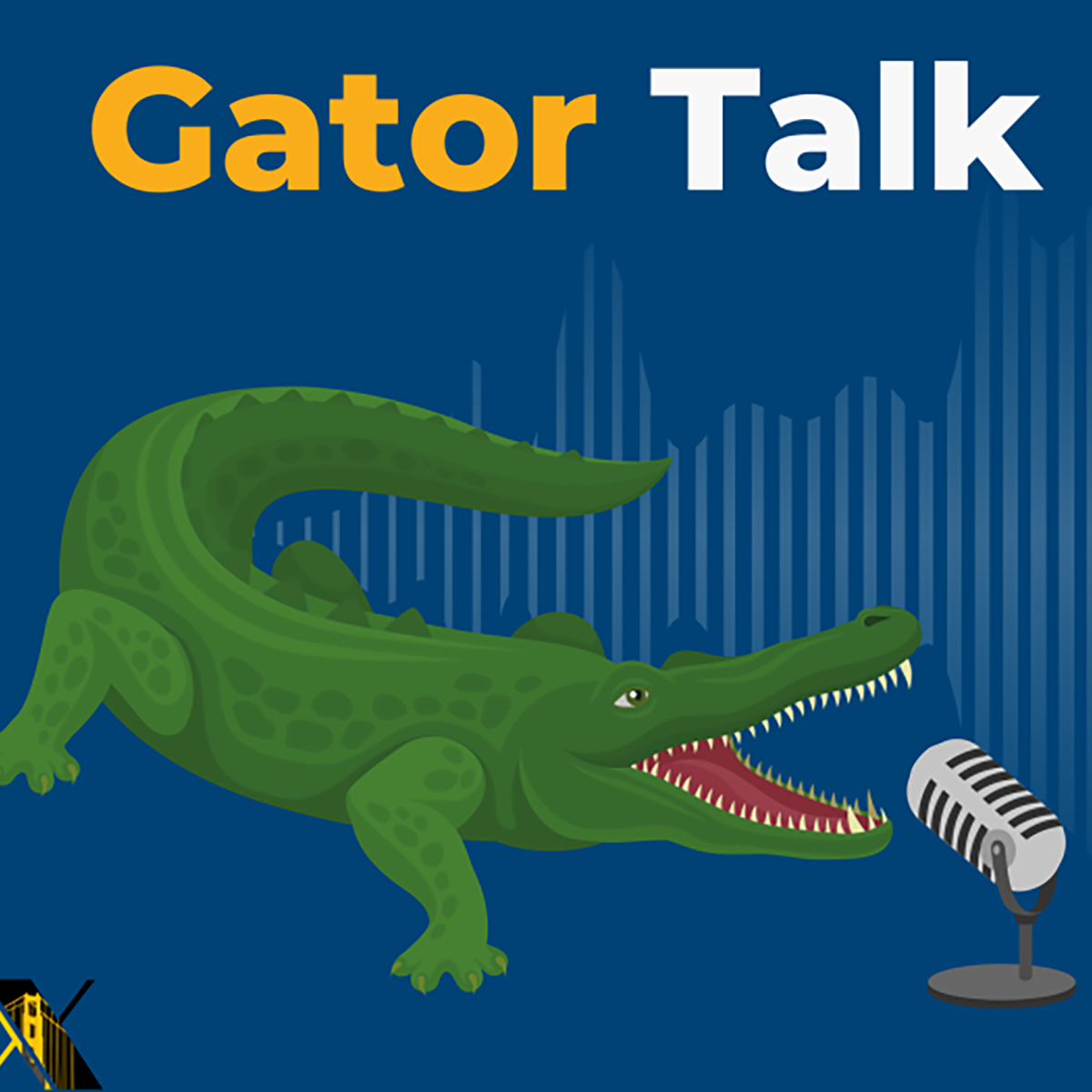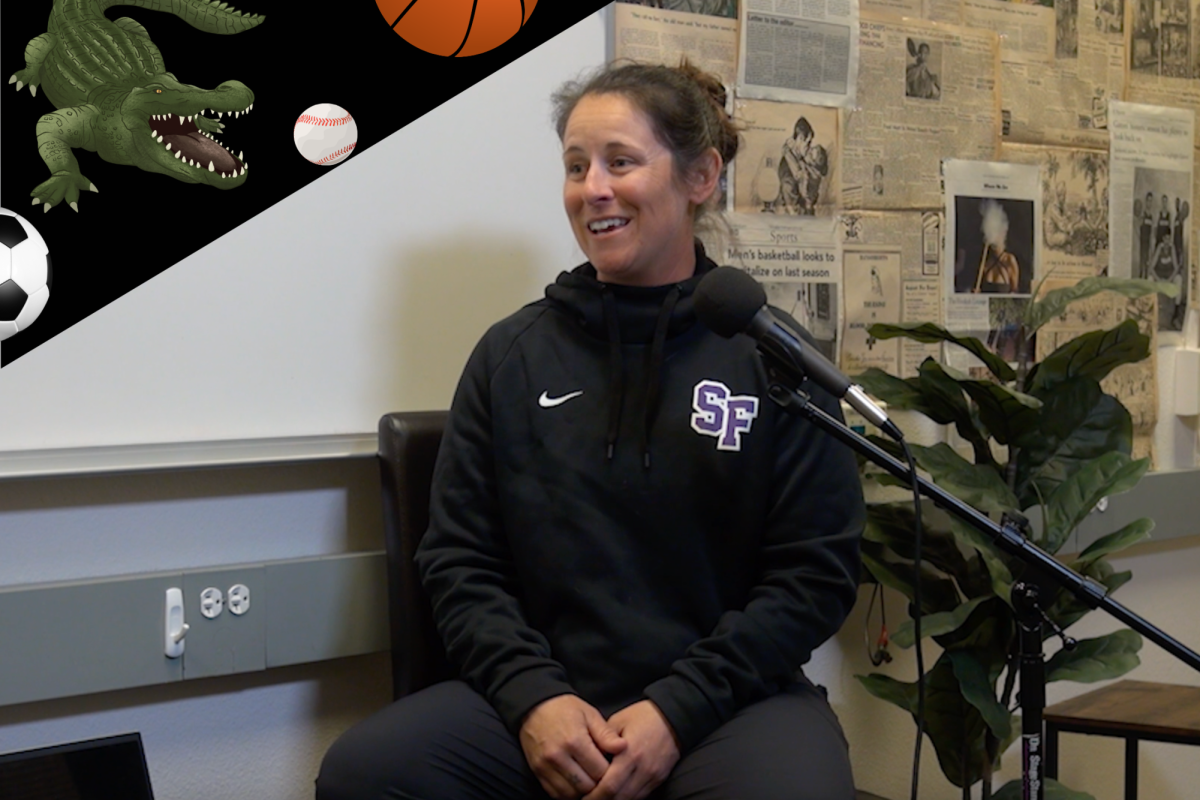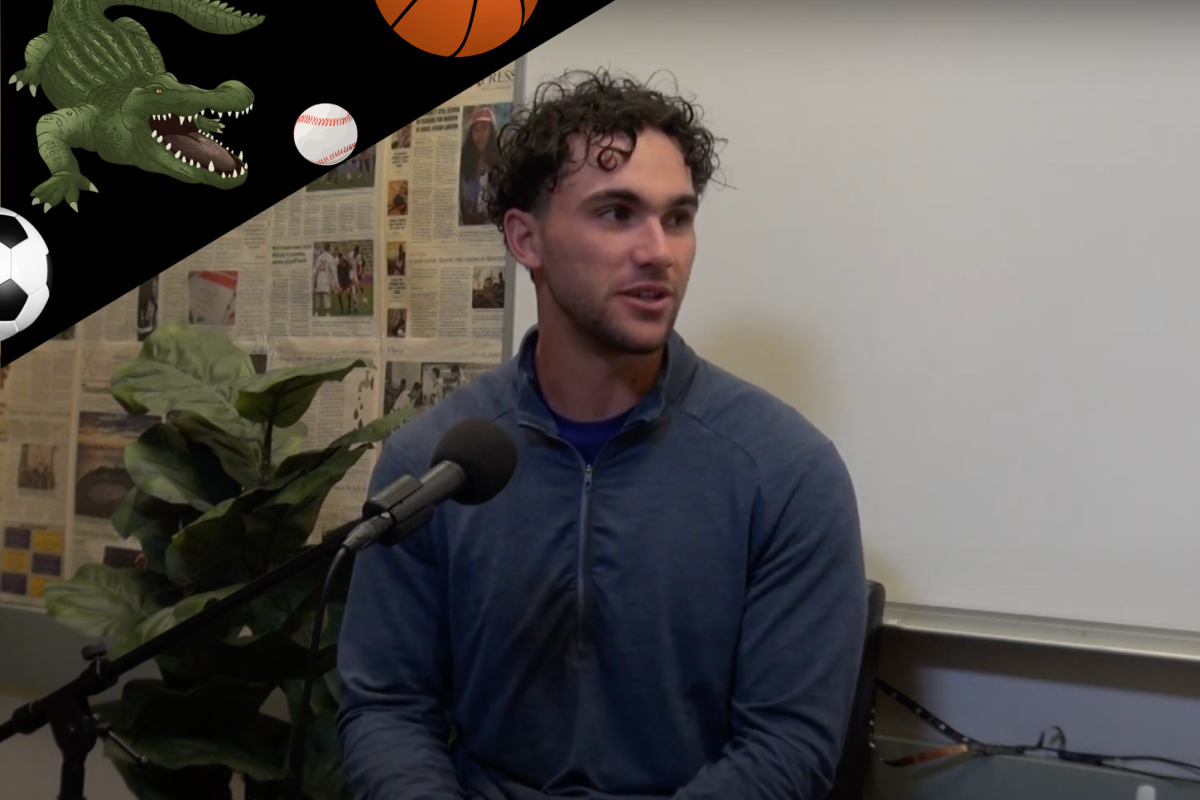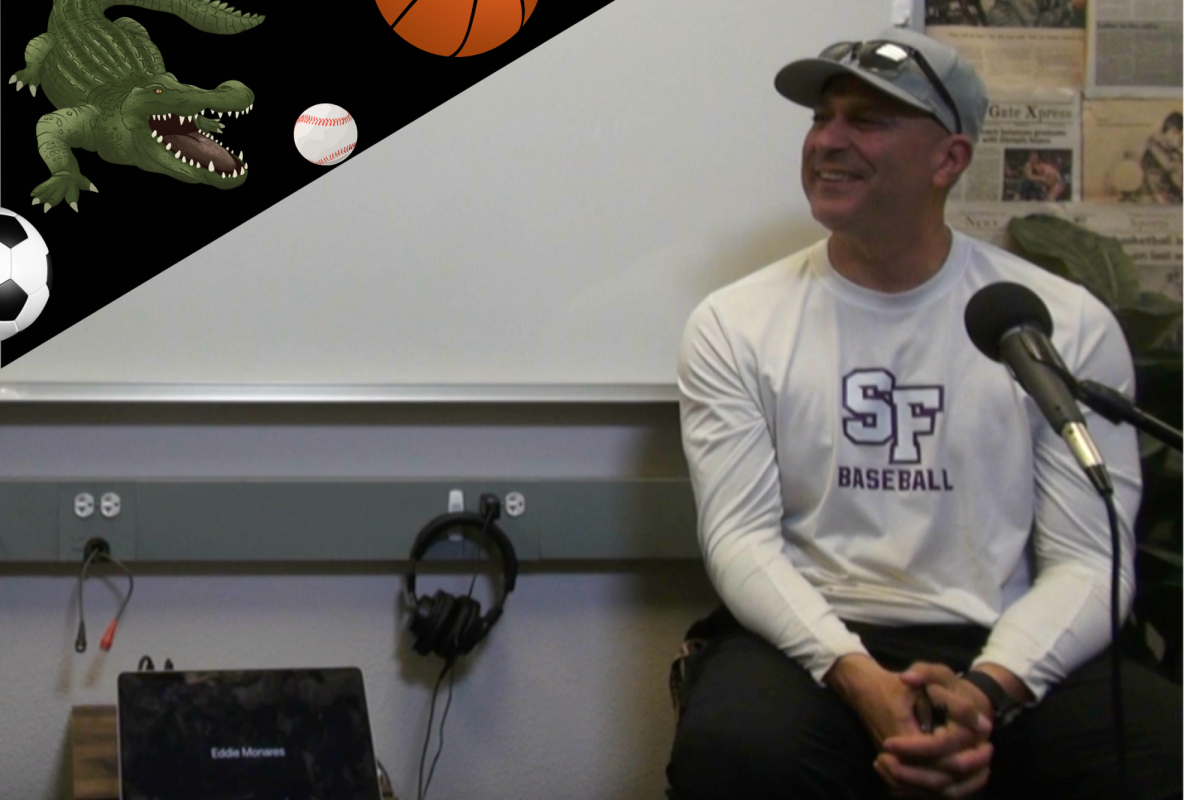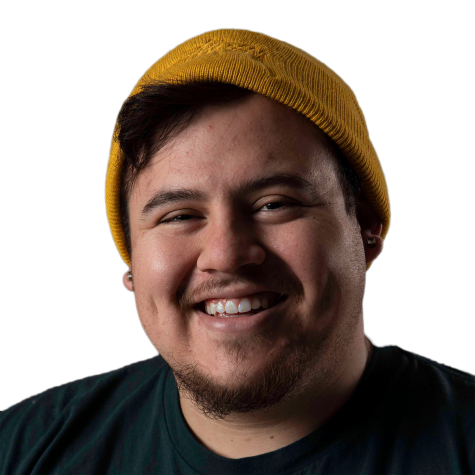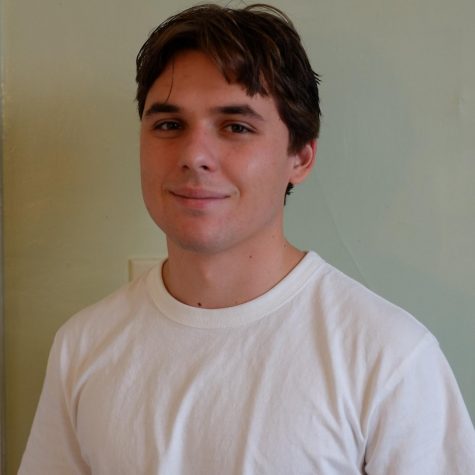Editor’s note: Fong-Torres’ early work was erroneously credited in this episode as a former writer for a phone book company. He has since clarified that he was editor for the phone book employee magazine.
Welcome to Gator Talk, a collaborative CalState podcast that brings city and statewide perspectives to SF State news.
This week, Xpress’ A&E editor Matt Faludi sits down with Bay Area music journalism legend Ben Fong-Torres ahead of the San Francisco premiere of his new documentary “Like a Rolling Stone: The Life and Times of Ben Fong-Torres.” Torres, an SF State (and student paper) alum served as the first music editor for the now ubiquitous Rolling Stone magazine and more recently has written for Parade, Playboy and the SF Chronicle.
Check out the story here at Gator Talk.
Intro
Seb: Hey hey. Seb here again. I’m your Visuals Editor and your host for Gator Talk, a Golden Gate Xpress podcast that brings news to SF State students.
We’re at Week 9 into the semester and I want to chill this week.
For more information/coverage, check out goldengatexpress.org OR @GGXnews on all social media platforms.
Preview of the show
Seb: Here’s a preview of the show!
We’re going to skip the news brief of this episode and go into the main story.
This week’s episode for the music nerds — our Arts and Entertainment Editor, Matt Faludi was lucky enough to sit down with someone who made Rolling Stone the magazine it is today.
Main Story
Seb: Okay, you gotta tell me. Who is Ben Fong-Torres and why is Rolling Stone involved?
Matt: So Ben was one of the first editors at Rolling Stone magazine, a renowned radio DJ and, maybe most importantly, an SF State alum who wrote for this same newspaper during the height of the counterculture movement in the sixties.
Seb: So Gator alumni? Whoa
Matt: Yeah, besides that, Ben’s a legend and I’m a fan, just don’t let him know that. I really want to talk with him.
Seb: So has he been in the news lately?
Matt: Yeah, next Saturday. Ben’s new documentary, “Like a Rolling Stone: The Life and Times of Ben Fong-Torres,” will have its SF debut at the Great Star Theater in Chinatown.
It’s directed by Suzanne Joe Kai, and it’s a celebration of his career. When you have people like Elton John, Bob Weir, Cameron Crowe and Anne Leibowitz saying that you’re… well… more or less “The Man,” when it comes to music journalism, you know you’re doing something right.
Seb: For the audience here at SF State, who may not know of literary giants, why is Ben so important?
Matt: Ben is a music journalist and Bay Area native. The middle-son of two Chinese Immigrants, Ben grew up in Oakland before graduating from SF State in 1966. His parents envisioned him as a doctor and Ben –– always the black sheep –– went on to study every parent’s worst nightmare ––journalism.
Seb: Around this time, the student publication at San Francisco State wasn’t called The Golden Gate Xpress, right?
Matt: Yeah. It was called the Gater. And while there, he was the City News Editor.
Ben: “I became editor of a school paper and ran a staff of about 20 people, and found myself in the middle of what would become known as the 60s with the protests and the rallies. And with a rock and roll scene and the hippie scene going on all around me and pro marijuana protests or anti pro legalization, and third world Liberation Front and all of that going on student strikes, freedom of speech, all these issues were swirling around us. And they became basically our beat at the daily newspaper. So that then served as a launching pad to what happened next, which was ultimately Rolling Stone being formed in San Francisco in the fall of 1967, right after the Summer of Love. And so I felt like I was pretty well prepared to qualify to write for them. And so I put in a story idea in spring of 68. Got it in there. And that began the long, long ride.”
Seb: So what happened after he graduated?
Matt: Ben worked odd jobs –– like writing copy for a phone book company –– before getting recruited by the team over at Rolling Stone, where he served as one of the core editors until they moved to New York in 1977.
Matt: While at Rolling Stone, he profiled artists and groups like Ray Charles, Marvin Gaye, Elton John, Tina Turner, Steve Martin, The Grateful Dead, Paul McCartney, The Rolling Stones, Stevie Wonder –– you get the idea.
Matt: You might even know Ben from his portrayal in ‘Almost Famous,’ where he served as the editor for William Miller, the main character.
[[“This is Ben Fong-Torres” audio from ‘Almost Famous’]]
Seb: I think your inner fanboy is showing.
Matt: Okay I’ll stop… the documentary is more than Ben and the rockstars he worked with at his time at Rolling Stone –– afterall he did leave the magazine almost 50 years ago. Ben wrote for Parade, The SF Chronicle and East West, a now defunct Bilingual newspaper that covered issues in San Francisco’s Chinatown. Now, he hosts his own radio show on Moonalice Radio.
Seb: So what does a person like Ben do in his spare time and a packed rolodex?
Matt: More recently, he’s worked as a biographer for artists and bands like the Grateful Dead, Carlos Santana, Gram Parsons and The Doors. With all this under his belt, you’d think it was about time Ben put something out about himself.
[interview audio]
Ben: “I just heard last night from the Critics Choice Awards, that I have been named one of the, quote, most compelling living subjects of a documentary. This is an honor, not a nomination I’m hearing from the Critics Choice Awards. It’s the documentary wing of the Critics Choice, which is around for a long time. But so I’m in there with Dr. Fauci, and Pete Buttegigeg, and Val Kilmer and Rita Moreno. And a diver named Valerie Taylor, for the film Playing With Sharks, and three or four others all tremendous worthies, heroic people. And for some reason, maybe just for some levity, they dumped me in there for “Like a Rolling Stone”. So I am indeed honored by the Critics Choice Association. And this is the first award to be connected to Like a Rolling Stones. So I’m quite proud of that.”
[voice-over]
Matt: Ben told me that the idea to make a documentary came out of a joke with his friend Suzanne Joe Kai. She had been pestering him, all these years, saying that he was just the side character in all these different documentaries about music and bands, and he snapped at her, saying “Well, why don’t you make a documentary about me?”
Ben: And so I allegedly snap back at her. Well, why don’t you make one? Innocently thinking that was a joke. Who would want to see that? And who would want to work and produce it. So, she took up the challenge and began work.” (4:14; Ben Interview)
[voice-over]
Matt: So, Ben –– for once –– took a backseat in the story-telling process and let Suzanne and her team take over. He helped with access and archival material, but didn’t even see the doc until it premiered at Tribeca Film Festival in New York last June.
[interview audio]
Ben: “It was up to her and her crew of shooters, and AV people, audio video people and engineers, veteran story editors, who could work with her as she discovered new threads to the story, new story arcs, and might get a little befuddled about how to tell a story about a rock, the journalist, also a story about the times in which he lived and worked, and also about his background as the son of Chinese immigrants who came to this country in defiance of the Chinese Exclusion Act. How do we weave all that together?” (5:41; Ben Interview)
[voice-over]
Seb: Wow, that sounds like a lot of ground to cover over one documentary.
Matt: It really is. One of the more emotional parts of the film comes when Ben talks about the murder of his brother Barry, who had worked in youth outreach centered around gangs in Oakland’s Chinatown. To this day, his murder still hasn’t been solved.
[interview audio]
Ben: “I’ve seen it only really, maybe twice, at the Tribeca, I got up and left at a certain point. And I came back onto the lawn, there was an incredible outdoor space in Battery Park. And just sort of check the audience members, let’s just see how they were feeling. But then I wandered away again. So I had seen at home saw this humongous screen, didn’t really need to see again, that quickly. [voice-over]
Matt: Still, after screening the film at the Los Angeles Asian Pacific Film Festival and, more recently, at the Mill Valley Film Festival, Ben said that he liked to show up late, just in time for the Q&A, so that he doesn’t have to watch it again.
[interview]
Ben: “I’m not a big fan of myself. And seeing myself and hearing myself, I have a pile I think of DVDs of these various documentaries about music that I’m in. And quite often they just sit there.” (10:22; Ben Interview)
[voice-over]
Matt: Another important aspect of the doc is Ben’s identity as an Asian-American. As a kid who dreamed of entering the world of radio, he said he was acutely aware that, in the fifties, there weren’t really any Asian’s in radio, or media-at-large for that matter.
[interview]
Ben: “We lived the first 10 years of my life in Chinatown, Oakland, and also pretty much at the restaurant where we were, and went to Chinese school, language school and industry school, after going to Lincoln Elementary. And so it was very clear that we were different. And when I began to become a fan of music, and radio and reading, the idea of writing the idea of being inside that radio, making those sounds and saying those things, I was aware that there was no Asian American representation at all”
Matt: According to Ben, he didn’t see much Asian-American representation. He loved to tune into KJazz to listen to Dr. Herb Wong’s weekend show. In print, he would love to find Frank Chin’s latest work, at the Pelican, a humor magazine at Cal Berkeley.
Ben: I thought that I would probably wind up using my interest and the beginnings of a skill sets to work for an ad agency and write commercials, or design, canned fruit, come up with radio jingles, headlines for newspaper ads, maybe write songs, because I enjoyed writing parody songs, I just enjoyed music. And I thought it would be something behind the scenes. And so for me to be lucky enough to have been raised in Oakland, and then cross the bridge to San Francisco, you have to have the more liberal, big towns in the country, one bridge away from each other.” (15:53)
Seb: We’re gonna take a quick break
Break
Support the Golden Gate Xpress’ work by signing up for our online newsletter, following us on Instagram or Twitter @ GGXnews and visiting the website: https://goldengatexpress.org
Interested in advertising with GGX? Check out our advertising page on goldengatexpress.org/advertising.
*break ends*
Cont. Main Story
Seb: Hey we’re back.. I’m here with Matt Faludi, he had a lot to share while interviewing Ben Fong-Torres. If you’re tuning in, a documentary on the life and career of Ben is set to release this Saturday.
Matt: That’s right Seb. For someone who’s talked to so many rock ‘n’ roll greats, I couldn’t help but wonder if Ben had a favorite interviewee. I’ll give you a hint: it wasn’t Marvin Gaye, or Paul McCartney or even Jim Morrison, who Ben had interviewed days before his death in Paris.
Matt: Ben tells me during our interview, that in one editorial meeting in 1973, the topic of Ray Charles came up. Ben mentions to the editors…. “I think Ray is in town, at a jazz festival…we should profile him.”
Ben: “He was the foundation of so much of our music. He was being bypassed by a lot of white performers who borrowed his sound just as you know, everybody had borrowed from R&B and gospel music and blues over the years, and just… he deserved it. So they said, Okay, go get him. And so I met up with this guy, and yeah, he was in agreement with my assessment of his career and what had happened to it. And so he was proud, an angry, funny, sharp, very active guy, he was still producing records and playing dates and writing music and doing all that stuff.”
Matt: So Ben met up with Ray Charles. And for those who don’t know…Ray Charles is a character. Charles, who’s known as the ‘father of soul’ was still producing records, playing shows and writing music. He’s known for songs like ‘Georgia,’ ‘Hit the Road Jack’ and ‘What’d I Say.’ His impact on music spans all the way from Elvis Presely to Kanye West, who’s hit song, Gold Digger, with Jamie Foxx is a sample of ‘I got a Woman,’ an old Ray Charles track.
So needless to say Ray Charles had a lot on his mind and Ben was jotting it all down.
During the interview, Ray was open about his anger, his place in history, personal struggles and thoughts on racism.
Ben: “And it was just a tremendous effort in which he revealed himself in a way he had not with previous major publications like Playboy and DownBeat, the Jazz Bible. And so Rolling Stone got quite a reward for taking a chance with Ray Charles, and it won an award. The Deems Taylor magazine award. And I always said that it was really Ray’s award because he said everything. I just sat there and posed questions and typed it out. Although you know, there are people that say, Oh, no, no, no. And in the movie, John Burks, the managing editor at Rolling Stone would talk about the way I built and rebuilt interviews to make Q and A’s more than Q and A’s, but I thought it was Ray who did all the work. And so that’s the, probably the one’s interview and story that I am most proud of.” (27:48)
[voice-over]
Matt: Superstar interviews aside, Ben still looks back to his time at SF State, particularly his time at the Gater, as a formative period of him as a journalist. While there, he said he learned the basics like copy editing, writing, but also learned to work with people, something he thinks can’t be taught in a textbook.
Ben: “I felt like I learned very little from the basic courses in the department, sorry, professors. because quite often they use old books, but then you walk across the hall into the Gater office, and it’s just a whole crazy world out there reporting on what’s going on at that moment on and off campus. So that’s where I got my education. And that’s where I still placed a lot of my gratitude.” (32:25)
End
Seb: And that was the episode, if you’re interested, Ben’s new movie, “Like a Rolling Stone: The Life and Times of Ben Fong-Torres will be showing at the Great Star Theater in San Francisco’s Chinatown on October 30 at 2 pm as a part of the Decibels Music Film Festival.
Seb: Thanks for joining us, Matt.
Matt: My pleasure.
Seb: New episodes will premiere Friday mornings, so stay tuned.
And with that, I’m out.





